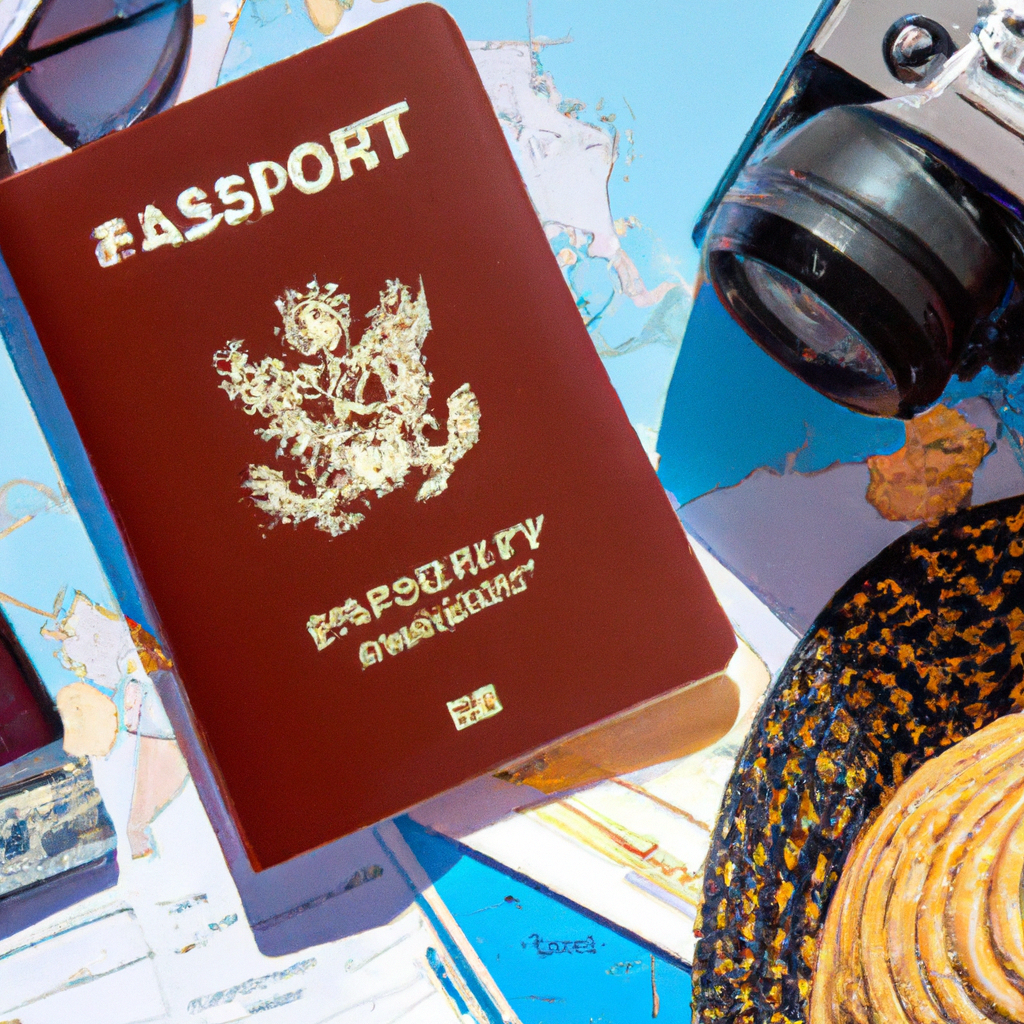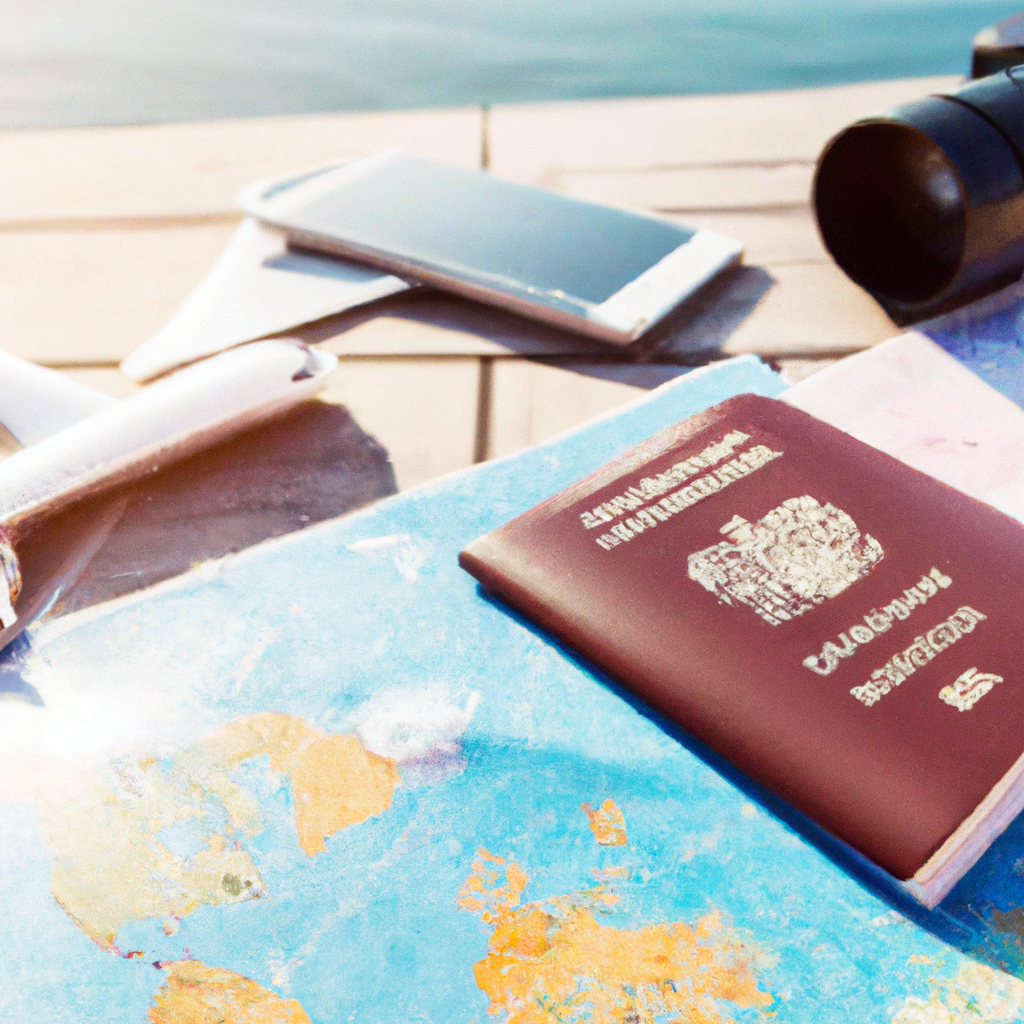
Planning a memorable vacation doesn’t have to break the bank. In our article, “Affordable Getaways: Making Memories Without the High Price Tag,” we will explore top destinations that offer exceptional experiences without draining your wallet. Discover hidden gems, budget-friendly accommodations, and wallet-savvy tips to create unforgettable memories without sacrificing your bank account. So, get ready to pack your bags and embark on an adventure-filled escape that won’t leave a dent in your pocket.
Destination Selection
Choosing the right destination for your vacation is crucial when you’re on a budget. By researching budget-friendly destinations, you can find places that offer incredible experiences without breaking the bank. Look for destinations that have a lower cost of living, which typically translates to lower prices for accommodation, food, and activities. Countries in Southeast Asia like Thailand, Vietnam, and Indonesia are well-known for their affordability, with plenty of opportunities for adventure and cultural immersion. Eastern Europe, including countries like Hungary, Poland, and Romania, also offers great value for money. So, do your research and find the destination that fits your budget and interests.
Another important factor to consider when selecting a destination is the off-peak season. Traveling during the shoulder or low season can significantly reduce your expenses. Prices for flights, accommodations, and activities tend to be lower during these periods when there is less demand. Not only will you save money, but you’ll also avoid the crowds, making your experience more enjoyable. Keep in mind that off-peak season varies depending on the destination, so make sure to research the best time to visit your chosen location.
If you’re looking to save on both transportation and accommodation, exploring nearby options is a wise strategy. Consider destinations close to your home country or those that are easily accessible by land. This way, you can save on airfare and enjoy a more affordable vacation. For example, if you live in the United States, exploring destinations in Mexico, Canada, or even Central America can offer tremendous value for your money. Additionally, by choosing nearby options, you’ll spend less time and money on traveling, allowing you to extend your vacation or allocate more funds to activities and experiences.
When planning your trip, it’s important to prioritize attractions and activities that align with your interests and budget. Make a list of the must-see sights and experiences in your chosen destination, and then research their costs. By prioritizing the ones that truly interest you, you can allocate your funds accordingly. Remember, it’s not about seeing everything; it’s about making meaningful memories within your budget. This approach will help you avoid overspending on activities that may not be worth it to you.
Budgeting and Planning
Creating a vacation budget is essential for a budget-friendly trip. Start by determining how much you can afford to spend on your vacation. Take into account your income, savings, and any additional sources of funds. Once you have an overall budget in mind, allocate funds to different categories such as transportation, accommodation, meals, activities, and miscellaneous expenses. This will give you a clear picture of how much you can spend on each aspect of your trip.
When it comes to transportation, there are several ways to save money. Look for affordable flights by comparing prices on different websites and consider booking your tickets well in advance. Airlines often offer better rates for early bookings, and you’ll have more options to choose from. If flexibility is an option for you, consider traveling during weekdays or on less popular travel days, as prices tend to be lower. Additionally, consider alternative modes of transportation such as trains or buses, which can be more cost-effective, especially for shorter distances.
Accommodation is another major expense to consider. While hotels can be convenient, they aren’t always the most budget-friendly option. Consider alternatives like hostels, vacation rentals, or even couchsurfing. Websites like Airbnb and Booking.com offer a wide range of affordable accommodations that cater to different budgets and preferences. Make sure to evaluate the location of your accommodation as well, as staying in central areas may be more convenient but usually comes with a higher price tag. Balancing location convenience and cost is crucial to finding the right accommodation for your budget.
To make the most of your budget, utilize cost-saving travel apps and websites. There are many platforms available that offer discounts and deals on flights, accommodations, activities, and more. Some popular ones include Skyscanner, Kayak, Expedia, and Groupon. These platforms allow you to compare prices and find the best deals, ensuring you get the most value for your money. Make it a habit to check these platforms regularly and sign up for their newsletters to stay updated on the latest promotions and discounts.
Opting for flexible travel dates can be a game-changer when it comes to saving money. If you have the flexibility to choose your travel dates, try to avoid peak travel seasons and holidays. Prices for flights and accommodations skyrocket during these periods, making it harder to stick to your budget. By traveling during off-peak seasons or even mid-week, you can secure better deals and enjoy a more budget-friendly vacation. Flexibility is key, so consider adjusting your dates to fit within your budget constraints.

Accommodation Options
When it comes to choosing accommodation, comparing hotel rates is an excellent way to find the best value for your money. Take advantage of hotel comparison websites like Trivago or Hotels.com to see multiple hotel options side by side and compare prices. Keep in mind that hotel prices can vary greatly depending on the location, amenities, and time of year. Consider your budget and preferences when choosing between budget hotels, mid-range options, or luxury resorts.
However, if you’re looking to save even more money, considering alternative accommodations can be a smart choice. Hostels have come a long way and now offer clean, comfortable, and affordable options for travelers. They are particularly popular among solo travelers or those looking to meet fellow travelers. Websites like Hostelworld or Booking.com allow you to compare hostel options and read reviews from other travelers. Vacation rentals are another budget-friendly option, especially if you’re traveling with a group or planning an extended stay. Platforms like Airbnb offer a wide range of affordable rentals that can provide a more authentic and home-like experience.
To find the best deals on accommodation, utilize websites that specifically cater to budget travelers. Hostelbookers, Agoda, or even specialized websites like VacationRentals.com can offer affordable options that may not be as well-known but still provide quality accommodations. By exploring these alternatives, you can find hidden gems that meet both your budget and comfort requirements.
When evaluating accommodation options, consider the location’s convenience and cost. Staying in a central area may offer easy access to popular attractions, but it often comes with a higher price tag. On the other hand, staying further away from the city center may be more budget-friendly but could mean longer travel times or additional transportation costs. Strike a balance between the two by considering public transportation options and the availability of affordable dining and grocery stores near your chosen accommodation.
Transportation Tips
Researching transportation options is key to finding the most cost-effective way to get around. Depending on your destination, this could involve comparing prices for flights, trains, buses, or even renting a car. Look at different transportation options and evaluate their costs, flexibility, and convenience.
Flights are often the most expensive mode of transportation, but with some research and flexibility, you can find affordable options. Compare prices across different airlines and booking platforms to ensure you get the best deal. Keep in mind that low-cost carriers may have cheaper fares but sometimes come with additional fees for baggage or seat selection. Be sure to read the fine print before booking your flight.
Compared to flights, trains and buses can often offer more budget-friendly options, especially for shorter distances. Research the availability and costs of train or bus routes in your destination. Look for discounts or special fares, as many countries offer discounted rates for students, seniors, or groups. While traveling by train or bus may take longer than flying, it can also provide a scenic and more immersive experience, making it a cost-effective choice.
If you’re looking to save even more money and reduce your carbon footprint, considering alternative modes of transportation like carpooling or biking can be an excellent option. Ride-sharing platforms like BlaBlaCar or local carpooling groups on social media platforms allow you to share rides with other travelers, reducing costs and making new connections. Biking is another great option, especially in cities with a well-developed cycling infrastructure. It’s not only a budget-friendly way to get around but also a healthy and eco-friendly choice.
Once you arrive at your destination, utilizing public transportation can save you money on taxi fares and rental cars. Research the local transportation options available such as buses, trams, or subway systems. Many cities offer day passes or travel cards that provide unlimited rides for a fixed price. Take advantage of these offers to explore your destination without worrying about racking up transportation costs.

Eating on a Budget
Researching affordable dining options is crucial when you want to stick to your budget while traveling. One of the best ways to save money on food is to opt for street food and local eateries. Street food can offer a delicious and authentic experience at a fraction of the cost of dining in restaurants. Look for popular food markets, stalls, or food trucks where you can sample local specialties. Not only will you save money, but you’ll also get to immerse yourself in the local culture and flavors.
Another budget-friendly option is to self-cater by utilizing grocery stores and self-catering facilities at your accommodation. By buying your own groceries, you can prepare simple meals, snacks, and picnic lunches at a fraction of the cost of eating out. Take advantage of local markets to buy fresh ingredients and explore regional produce. This way, you can enjoy local flavors even when you’re on a budget.
When eating out, try to sample regional specialties that are budget-friendly. Each destination has its own local dishes or street food that are both delicious and affordable. Ask locals or do some research to find out the must-try dishes that won’t break the bank. Not only will you indulge in tasty cuisine, but you’ll also get a glimpse into the local culinary traditions.
Free and Low-Cost Activities
Exploring free and low-cost activities is a fantastic way to make the most of your vacation without overspending. Many destinations have parks, gardens, and beaches that are open to the public and provide beautiful and relaxing spaces to enjoy. Take a stroll, have a picnic, or simply relax and soak in the surroundings. These natural attractions can be just as impressive as their paid counterparts.
Museums and art galleries often offer free or discounted entry on certain days or times of the week. Research the museums and galleries in your destination and see if they have any special offers. Take advantage of these opportunities to explore the local art and culture without spending a fortune. Many cities also offer free walking tours or guided hikes, providing a great way to learn about the history and culture of the area while getting some exercise.
Participating in local festivals and events is not only a great way to experience the local culture but also a chance to have fun at a low cost. Many destinations host festivals, concerts, or street fairs throughout the year, and often the entry is free or at a minimal cost. Check the local event calendars or ask locals for recommendations to find out what’s happening during your visit.

Discounts and Coupons
To save money on attractions and activities, take advantage of discounts and coupons. Many attractions offer discounted rates for students, seniors, or members of certain organizations. Research the attraction-specific discounts available in your destination and make sure to bring the necessary documents or proof of eligibility.
Subscribing to travel deal newsletters is another way to stay updated on the latest promotions and discounts. Many travel websites and platforms offer regular newsletters that inform subscribers about special offers, flash sales, or exclusive discounts. By signing up for these newsletters, you’ll receive the latest deals directly to your inbox, allowing you to score great savings.
If you’re eligible, utilize student, senior, or membership discounts to make the most of your budget-friendly vacation. Many attractions or service providers offer discounted rates for students or seniors, so always carry your identification or relevant cards with you. Additionally, if you are a member of any travel-related organizations such as AAA or AARP, make sure to inquire about any special discount programs they offer.
Downloading coupon apps or using online discount codes can provide significant savings on activities, restaurants, or shopping. Platforms like Groupon or RetailMeNot offer a wide range of coupons and discount codes that you can use during your trip. Before making any purchase or booking, make it a habit to check if there are any available coupons or codes that you can apply for additional savings.
Saving on Souvenirs
Souvenirs are a significant expense for many travelers, but there are ways to save money in this area. Avoid tourist traps with inflated prices by doing some research before buying souvenirs. Look for local markets or artisan shops where you can find authentic and reasonably priced souvenirs. These local handicrafts often tell a story and are much more meaningful than mass-produced trinkets.
Shopping at local markets can be a great way to save money on souvenirs. Not only will you find unique items, but you can also bargain and negotiate prices with the vendors. This can be a fun and interactive experience, allowing you to find the best deals and make connections with the locals. Remember, bargaining is a common practice in many countries, so don’t be shy to negotiate the price to fit your budget.
Consider collecting photos and memories instead of physical souvenirs. Memories and experiences can last a lifetime and don’t come with a price tag. Instead of buying souvenirs, focus on capturing moments and taking photographs of the places you visit. Not only will you save money, but you’ll also have a valuable and personal collection of memories to cherish.

Safety and Security
While traveling, safety and security should always be a top priority, regardless of your budget. Researching the destination’s safety reputation before your trip is crucial. Look for travel advisories issued by your country’s government and read up on any safety considerations specific to your destination. Staying informed will help you make the necessary preparations and ensure you have a safe and worry-free trip.
Choosing well-lit and crowded areas is a simple precaution that can significantly increase your safety while traveling. When exploring cities or unfamiliar areas, stick to well-populated areas and avoid isolated spots. This can deter potential pickpockets or scammers and provide you with a sense of security.
Taking precautions against pickpocketing and scams is essential, especially in popular tourist areas. Be aware of your surroundings, keep your belongings secure, and avoid carrying large amounts of cash or expensive items. Use a money belt or secure bag to store your valuables, and divide your money between different pockets or bags. Stay vigilant and trust your instincts if you sense something suspicious.
Keeping important documents and valuables secure is crucial when you’re on a trip. Make copies of your passport, identification cards, and travel documents, and store them separately from the originals. Utilize hotel safes or secure locks to protect your valuables when you’re out exploring. It’s also a good idea to have electronic backups of important documents stored in cloud storage or emailed to yourself, so you can access them in case of loss or theft.
Traveling with a Group
Traveling with a group can be a fun and cost-effective way to explore a destination. One of the biggest advantages of traveling in a group is splitting costs for accommodations and transportation. By sharing the expenses, you can save a significant amount of money. Look for accommodations that offer group discounts or consider booking a vacation rental that can accommodate multiple people. Sharing a rental car or hiring a van can also be a cost-effective way to get around, especially when splitting the costs among the group.
Choosing group-friendly activities and attractions is essential when traveling with a group. Look for activities that offer group discounts or special rates for larger parties. Group tours, cooking classes, or outdoor adventures often have packages specifically designed for groups, allowing you to save money while having a great time together. Make sure to communicate with your group and consider everyone’s interests and budgets when planning activities.
Creating a shared budget and expense tracking system is crucial when traveling with a group. Transparency and open communication about finances can prevent misunderstandings and ensure that everyone is on the same page. Consider using budgeting apps or spreadsheets to track expenses and divide costs evenly. By keeping track of your expenses, you can avoid overspending and have a clear overview of your shared budget.
Planning group meals and grocery shopping can be an excellent way to save on food expenses. Consider cooking meals together or having potluck dinners, where every member of the group contributes a dish. This can be a fun and budget-friendly way to enjoy meals together while experiencing different cuisines. When grocery shopping, ask everyone in the group for their preferences and dietary restrictions. By planning meals in advance and shopping together, you can save money and ensure that everyone’s needs are met.
Traveling on a budget doesn’t mean sacrificing memorable experiences. With careful planning and some research, you can have an incredible vacation without breaking the bank. Remember to prioritize your spending, consider alternative options, and take advantage of discounts and deals. By making smart choices and being mindful of your budget, you can create lasting memories without the high price tag. Happy travels!




